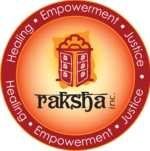STALKING AWARENESS
The Covid-19 world exposes individuals and families experiencing domestic violence and abuse or those at risk to more danger – even if they are not in physical proximity to their abuser. Incidents of technology abuse, online harassment, cyberstalking have spiked since early 2020; evident from the increase in sales of spy and stalker ware, among other indicators.
If you know someone at risk or may be going through the traumatic experience of domestic or interpersonal violence or any form of partner abuse, you may also be knowing someone who is at risk for stalking. A majority of stalking victims are stalked by a current or former intimate partner, or acquaintance and are three times more likely to be or have been a victim of violence or abuse (Factsheet, SPARC).
JANUARY IS NATIONAL STALKING AWARENESS MONTH! Follow us on Facebook and Instagram to get shareable infographics and increase awareness.
If you or a loved one is being stalked:
- If you are in immediate danger, call your local police department’s emergency number (911). If your local police department employs a victim advocate, they may be able to help you develop a safety plan. (Source: Office for Victims of Crime)
- Trust your instincts. Identify a pattern of behavior.
- Get more information on stalking and types of stalking from some of the many resources listed below (compiled from various sources).
If you do not know how to reach your local service provider, or for additional assistance:
- you may wish to contact the National Domestic Violence hotlines (listed below), or
- reach out to a local domestic violence organization or service provider.
Domestic violence and/or sexual assault service providers can be great resources to contact about stalking even if they do not provide direct services related to stalking.
- Keep a log of obsessive behavior.
- Make a physical safety plan. Many domestic violence organizations have practical tips and resources on making one, like the NNEDV and thehotline.org
- Create a technology safety plan
- Tips on creating a tech safety plan (NNEDV)
- Safety considerations for seeking help online (NNEDV)
Having a Tech Safety Plan is important, especially in the digital world! (sourced from the NNEDV):
- Identify technology-based stalking or abuse
- Use the Tech Safety App for step by step tips
- Change passwords regularly and often
- Limit information about yourself online
- Use a profile picture that isn’t your face
- Make usernames that don’t include your name / birthday
- Delete your history / cookies / saved passwords regularly
- Use an anti-virus software
- check your privacy settings on social media sites.
Resources on Stalking Awareness and Ways to Help Stalking Victims:
| Organization | Phone Number | Website/ Social Media |
| Stalking Prevention, Awareness and Resource Center (SPARC) | (202) 558-0040 | WebsiteInstagram |
| The Safety Net Project; National Network to End Domestic Violence (NNEDV) | Website | |
| National Center for Victims of Crime (NCVC) | 1-202 467 8700 | Stalking Resource CenterEmail |
| National Domestic Violence Hotline | 1-800-799-7233 | WebsiteChat |
| National Sexual Assault Hotline/ National Street Harassment Hotline (RAINN) | 1-800-656-4673 | Chat |
| National Human Trafficking Resource Center | 1-888-373-7888 | Text |
| National Teen Dating Abuse Helpline | 1-866-331-9474 | Chat |
| VictimConnect Hotline | 1-855-484-2846 | Chat |
| Cyber Civil Rights Initiative | 844-878-CCRI (2274) | N/A |
